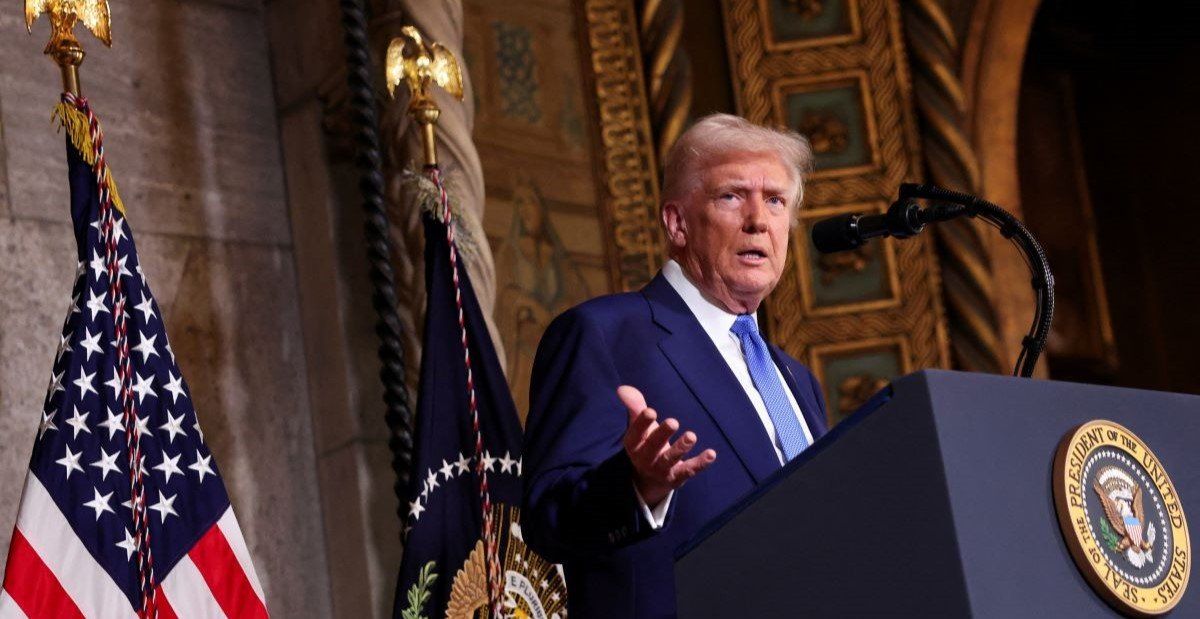U.S. President Donald Trump speaks at Mar-a-Lago in Palm Beach, Florida, U.S., February 18, 2025.
The Trump administration is moving to expand presidential authority over key independent regulatory agencies that were set up to be guarded from the executive’s influence.
On Tuesday, Donald Trump issued an order titled “Ensuring Accountability for All Agencies,” requiring independent agencies to submit any proposed regulations to the White House to ensure they align with the president’s priorities.
What does the order say? It gives the Office of Management and Budget – which has been working in lockstep with Elon Musk’s Department of Government Efficiency – the authority to make funding decisions and to “establish performance standards” for employees. It also instructs the agencies to create a leadership position for a “White House Liaison.”
The order applies to 19 agencies, and notably affects:
- The Securities and Exchange Commission, which oversees markets.
- The Federal Trade Commission, which enforces antitrust laws and protects consumers from deceptive business practices.
- The Federal Communications Commission, which regulates the media, internet, and all other forms of communication.
- The Federal Election Commission, which oversees elections and political campaigns.
- The Federal Reserve. While the order does not apply to the monetary policy decisions of the Federal Reserve, it does bring its regulation of financial institutions under the purview of the president.
Pros: Proponents of the executive order argue that putting the commander in chief in charge makes agencies more democratically accountable because voters can hold the president responsible for their decisions at the ballot box. Trump is also keen to control the regulatory state, which he believes hindered his first time in office.
Cons: These agencies were established by Congress to operate independently from the White House for a reason. They protect democratic principles like freedom of the press, preventing their potential weaponization through selective auditing or manipulation of election and campaign finance laws, and shielding markets and financial institutions from short-term, politically motivated regulations that could cause long-term harm.
The courts just caught another case. Since these agencies were established by Congress to be independent of the president, the order will inevitably trigger legal challenges, likely to reach the Supreme Court since they concern questions of checks and balances and executive authority. Once there, Trump will test the long-fringe unitary executive legal theory, which argues that the president has the sole authority over the executive branch.